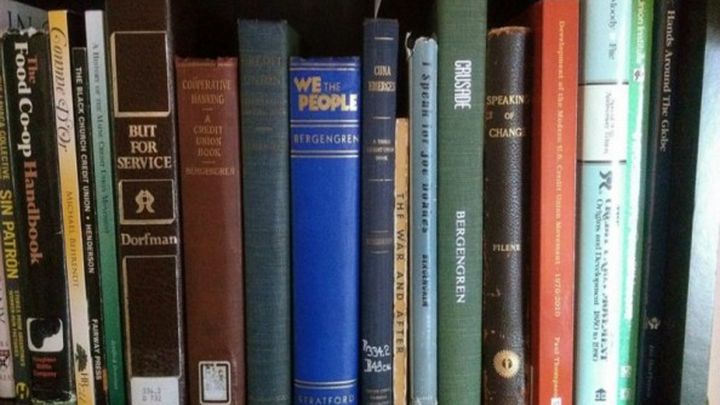
Credit Union Oral History Project
Goal:
To spend several weeks travelling through the U.S. South video-recording oral history interviews with African American credit union elders.
Intended Impact:
1. To create a collection of oral history interviews of Southern African American credit union elders that will serve as a resource for anyone interested in the history of African American credit unionism. I plan to make all of the interviews available on Youtube.
2. To use the experience of this tour to create and refine a credit union oral history template that can be used by credit unions that desire to conduct interviews with their own elders. For the importance of a widespread credit union oral history initiative, see "The Importance of Credit Union Oral History" below.
Proposer Bio:
My name is Matt Cropp, and I've been interested in the history and development of the cooperative movement, and credit unions in particular, for a number of years. I have an MA in History from the University of Vermont, where I wrote my thesis on the founding and early development of the Vermont State Employees Credit Union, and I have also done work on the history of the Association of Vermont Credit Unions. I have extensive experience interviewing cooperators for video from producing an ongoing show titled "Cooperative Vermont" and have participated in an oral history methods training through the Vermont Folklife Center. I also maintain the blog Credit Union History, where I post book reviews, sources, and general musings.
Financial Needs:
I intend to undertake this project regardless of the amount of money I raise; your contributions, however, will determine how effective and extensive my work will be. My plan is to begin the tour in New Orleans at the end of February, and finish in Baltimore, Maryland at a time that will be dependent upon how much money I can raise. Below are the things I expect to be able to accomplish at different funding levels:
$500 - I can purchase a USA Rail Pass that will allow me to visit up to 8 destinations along the AMTRAK Crescent route between New Orleans and Baltimore, and I can devote ~7-10 days to the project, collecting as many interviews as I can along that route.
$1000 - I can afford to get motel rooms in towns I visit in which I have no offer of a couch/floor. I will try to utilize credit unionist solidarity housing and couch-surfing as much as possible, but it would be nice to have the security of being able to fall back on getting a motel room.
$1500 - I can rent a car in some of the towns I stop in, allowing me to conduct interviews in areas away from the train route that would otherwise be inaccessible to me.
$2000 - I can diversify my diet beyond the large jar of peanut butter in my back-pack!
$2500 - I can upgrade my equipment. While my flip-cam will do the job, a newer and better camera will increase the quality of the interviews.
$3500 - I can afford to extend my time doing interviews to 15 days.
$5000 - I can afford to upgrade to a 12 segment rail pass and spend three weeks on the project.
The Importance of Credit Union Oral History:
Over the course of the twentieth century, hundreds of thousands of volunteers from all walks of life committed themselves to the task of building cooperative, democratic credit unions intended to fill the unmet financial needs of their communities. As a result of their efforts, the credit union movement grew from a loose-knit network of volunteers running their institutions a few hours per week out of shoe-boxes and church basements into the highly professional system of financial services cooperatives that now has over a trillion dollars in assets and ninety-six million members.
However, in spite of their instrumental role in the movement's success, the voices of those rank-and-file volunteers have been conspicuously absent from much of the historical work that has been done on credit unions. Instead, historians have tended to view the movement's development through the lens of the creation and growth of institutions such as state leagues and the Credit Union National Association. While the stories of those organizations are essential to an accurate understanding of the movement's past, it is of equal importance to understand the motivations, values, sacrifices, and decisions of the countless people who did the hands-on work of building the credit union movement.
I believe main the reason for the primacy of the former approach has been one of practicality and access to sources. CUNA and the Leagues have organized archives of papers going back decades, while the merger movement has decimated the records of many credit unions as they combined. Furthermore, while the voices of League managers were amplified and preserved in newsletters, leaving written legacies of their thoughts on the credit union project was not often a high priority for credit union volunteers. As a result, in spite of the fundamentally bottom-up character of the credit union movement, our understanding of its history has tended to take a top-down approach and perspective.
To correct this imbalance and come to a more comprehensive understanding of its past, the credit union movement urgently needs to start systematically collecting the oral histories of its elders, and soon, as the generation that was active before the professionalization of the "˜70s and "˜80s will not be with us much longer. The more of them who pass away without leaving us with the legacy of their wisdom and recollections, the more impoverished our understanding of our movement's history will be.